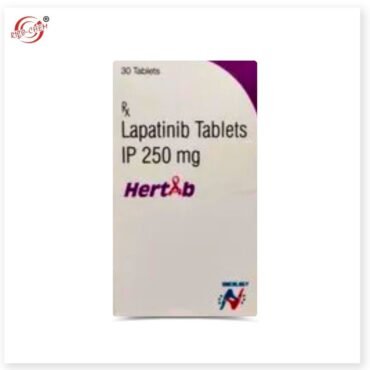Imatinib 100mg Capsule Celonib
Trade Name: Celonib
Manufacturer: Celon Laboratories Ltd
Presentation: Capsule
Strength: 100mg
What is Imatinib 100mg Capsule Celonib?
Imatinib 100mg Capsule Celonib has a place with the class of meds known as tyrosine kinase inhibitors. It is utilized in the therapy of blood malignancy (ongoing myeloid leukemia and Acute lymphocytic leukemia) and gastrointestinal stromal cancer.
How Celonib Capsule is used?
Imatinib 100mg Capsule Celonib ought to be taken with food, yet better to have it at the same time each day to get the most advantage. You should keep on accepting it as long as your PCP exhorts for it. The length of treatment fluctuates as indicated by your need and reaction to treatment. If you take too much or misinterpret it, you can get serious side effects. It may take a few weeks or months for you to notice or feel the benefits, but don’t stop taking it until your primary care physician tells you to.
What is imatinib 100 mg used for?
Imatinib 100mg Tablet belongs to the tyrosine kinase inhibitors class of drugs. It’s used to treat blood cancers such as chronic myeloid leukemia and acute lymphocytic leukemia, as well as gastrointestinal stromal tumors.
Common Side effects of Imatinib mesylate 100mg Capsule:
The most well-known symptoms of this Imatinib 100mg Capsule Celonib incorporate edema, queasiness, retching, muscle cramps, musculoskeletal torment, looseness of the bowels, rash, exhaustion, and stomach torment. Inform your primary care physician as to whether you experience surprising quick weight acquisition. Your PCP might inform for ordinary checking with respect to platelets and liver capacity while you are taking this medication. Try not to drive or do anything requiring mental concentration on the off chance that you experience dazedness and foggy vision. For more details Click Here.
What cancers are imatinib used for?
Acute lymphoblastic leukaemia, chronic myeloid leukaemia, gastrointestinal stromal tumours, and myelodysplastic/myeloproliferative disorders are among the cancers treated with this drug. It works by slowing or preventing cancer cell proliferation.
How long can you stay on imatinib?
Although the optimal treatment period is uncertain, imatinib should normally be continued for 6–9 months, after which additional tumour shrinking is usually minimal.
What happens when you stop taking imatinib?
After quitting Gleevec treatment, withdrawal symptoms such as bone pain and itching have been reported in research. Stopping treatment can sometimes make your cancer worse. This, in turn, may exacerbate the symptoms of cancer for which you were taking Gleevec.
Can imatinib cause kidney damage?
Conclusion. Imatinib therapy is linked to potentially irreversible acute renal injury in nonclinical trial CML patients, and long-term treatment may result in a clinically meaningful drop in estimated GFR.
Can you take imatinib at night?
The dose can be taken completely at once or split into two smaller doses (once in the morning and once in the evening). However, the daily intake is normally limited to 600 mg. Use and dosage for children under the age of one year must be determined by your doctor.
Can we stop imatinib?
In individuals who have had a CMR for at least two years, it is safe to stop using imatinib. Imatinib discontinuance produces promising results for molecular relapse-free survival in this situation, highlighting the possibility that tyrosine kinase inhibitors could cure CML in some individuals.
We are a Global Wholesaler and Exporter from India and Operate in more than 5 Countries like UAE, Oman, Qatar, Saudi, Myanmar, etc. If you are looking for a Product or Brand To Click here.







